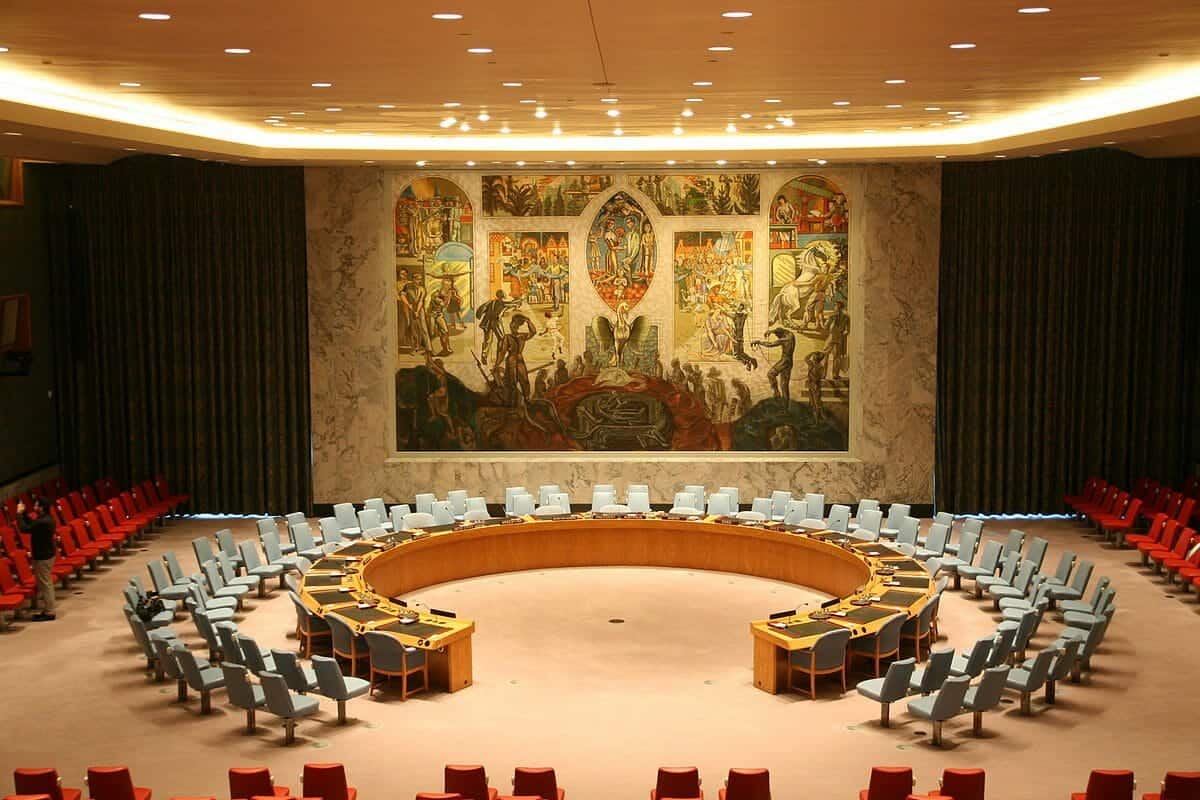|By Dominic Powell, recent graduate in Law with French Law from the University of Birmingham|
Providing publications and archives from the Royal Institute of International Affairs, Chatham House Online Archive is a highly valuable resource for students of International Law. With over 6,000 publications on international law, comprising research, analysis, speeches and reports, the archive covers an extensive list of topics. Whether your interests lie in international relations, politics or human rights, or you are looking into more specific areas such as democracy, fascism or transportation, there are publications for you!
The Declaration of the United Nations
As a key intergovernmental organisation, the United Nations (UN) plays an essential role in the creation, evolution and functioning of International Law. As such, it features frequently in the publications in Chatham House Online Archive, with many giving in-depth and vital information on the organisation. One such publication from 1942, “The United Nations”, outlines its background, namely the 1942 “Declaration of United Nations”, which became the basis of the UN and was the predecessor to the United Nations Charter.
The extract below explains the significance of this Declaration, not only for the war effort, but also for the future of intergovernmental cooperation. The fact that this was the first time an international agreement of this scale had been reached set out a new precedent for the world after the war, demonstrating that such a level of cooperation was not only possible, but also effective.
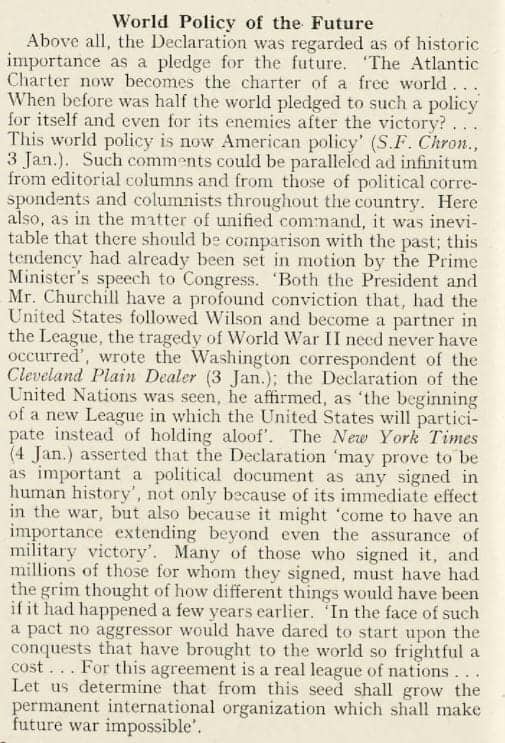
Link for users signed in to Chatham House Online Archive.
The Charter of the United Nations
Following the Declaration of United Nations, the Charter of the United Nations was signed in June 1945. This outlined the general purposes and principles of the organisation, centred around the protection of human rights. A copy of this Charter can be found in full in Chatham House Online Archive.
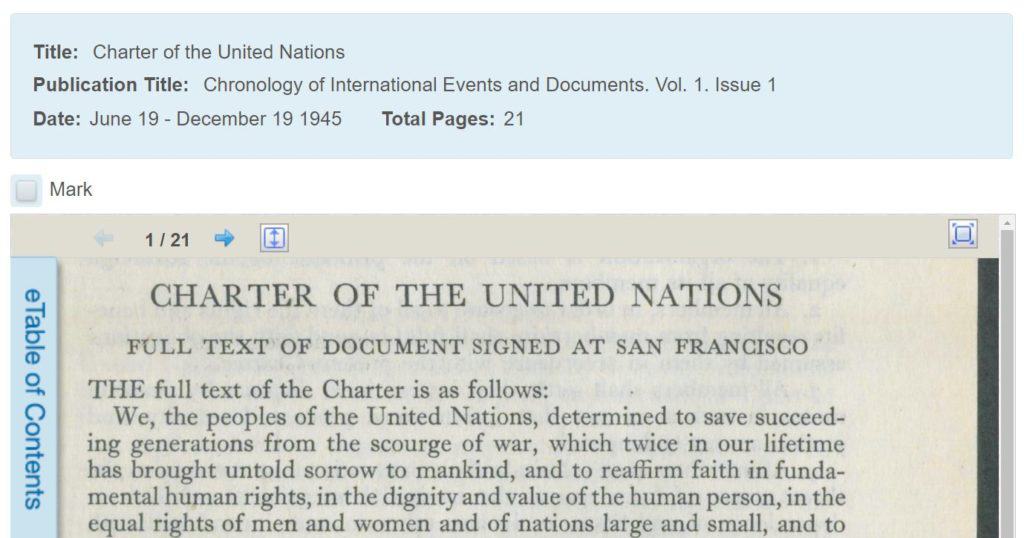
Link for users signed in to Chatham House Online Archive.
The General Assembly of the United Nations
The UN is made up of many different organs, each serving a unique purpose. The principal organ, and the only one in which every Member State of the UN is represented, is the General Assembly. The publication “The General Assembly of the United Nations” from the journal Chronology of International Events and Documents (Vol. 2. Issue 2) gives details of the first session of the General Assembly, held in London on January 10, 1946.
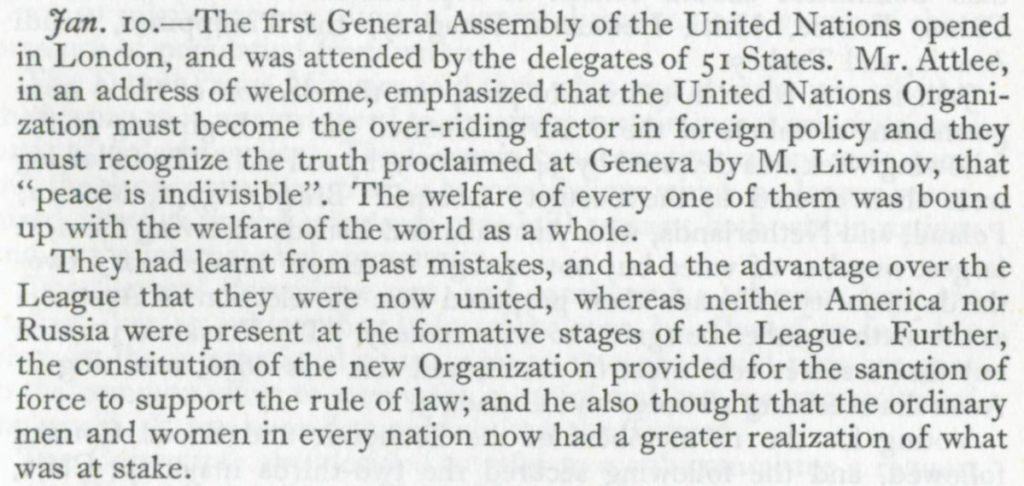
Link for users signed in to Chatham House Online Archive.
The extract above briefly explains Clement Attlee’s opening address at this session, where he explained the importance of the newly formed United Nations in the maintenance of peace. He discussed the ways in which this new organisation would build on the mistakes made in the running of its predecessor, the League of Nations, emphasising the importance of its constitution.
The publication also gives an idea of the way in which the General Assembly functions, explaining the election of the first president of the Assembly by a secret ballot. It goes on to discuss the election of the permanent and non-permanent members of the Security Council, amongst other UN organs, as well as the first meeting of the General Committee of the General Assembly. This demonstrated the role of the General Assembly as the main organ of the UN, and the one used to decide on matters concerning the functioning of other organs and the organisation as a whole.

Link for users signed in to Chatham House Online Archive.
The Security Council of the United Nations
Another of the key organs of the United Nations is the Security Council. With 15 Members, 5 permanent and 10 non-permanent members elected for two-year terms, its main purpose is to keep international peace and security. In her 2001 publication “The Security Council: Behind the scenes”, Linda Melvern covers in detail the inner workings of the Council, with specific reference to its “ineffective” response to the Rwandan genocide. She explains how, despite the fact that the permanent members of the Council had some knowledge of the genocide that was planned, this was never passed onto the non-permanent members, and none of this was presented to the Council. Understanding the shortcomings of an organisation is vital for any student wanting to critique its function and role, so the inclusion of papers like Melvern’s in Chatham House Online Archive makes it a valuable resource.

Link for users signed in to Chatham House Online Archive.
The International Court of Justice
The principle judicial body of the UN is the International Court of Justice, whose role it is to settle legal disputes between States, and to offer legal advice to other UN organs. In a speech at Chatham House in 1992, Sir Robert Jennings, the President of the International Court of Justice at the time, explains the role of the Court in International Affairs. He discusses the relevance of various cases, explaining that these disputes can lead to hostilities and war.
He goes on to give a brief explanation on the way that judgements are made by the court, and how this differs to judgements in domestic courts. He explains how each judgement is made by a full court of at least 15 judges, each of whom make individually researched notes on the case. This is followed by discussions on each point, and a judgement given in full in both French and English, all of which results in lengthy court proceedings.
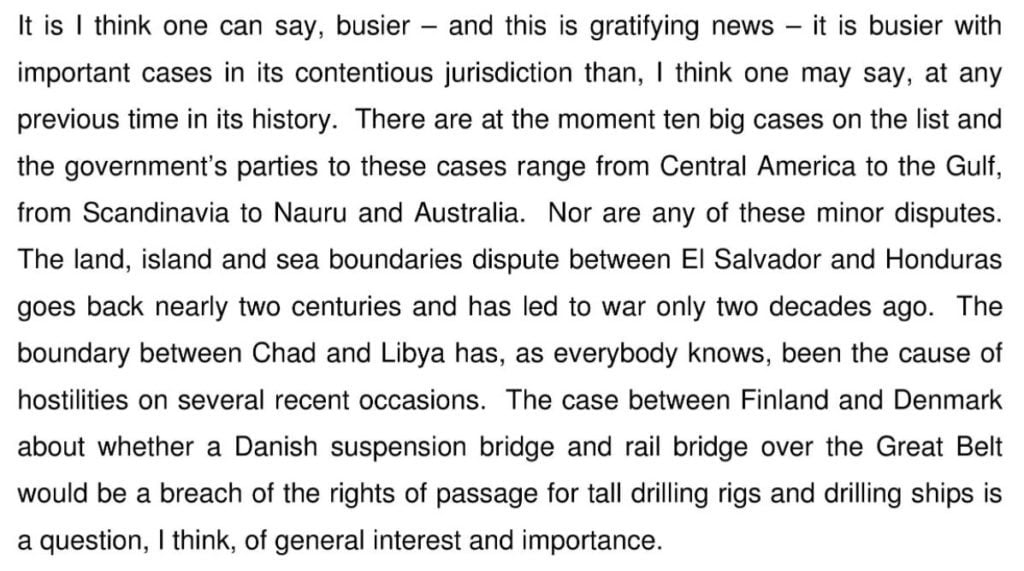
Link for users signed in to Chatham House Online Archive.
Publications for every area of international law
I have selected just a small number of examples from the extensive list of publications provided by Chatham House Online Archive that cover the United Nations; a search for publications with “United Nations” in the title returns 741 results, whilst a search for the same within the full text gives 14,369. I have chosen to focus on the United Nations in this blog post due to the vital role it plays in the world of international law. Chatham House Online Archive does, however, provide publications for every area of international law, providing students with a broad range of resources closely linked to their studies that can be used for research on any aspect of the subject.
If you enjoyed reading about the resources included in Chatham House Online Archive, you may like:
- In or Out? Exploring Britain’s Relationship with Europe using Chatham House Online Archive
- Dorothy L. Sayers and The Mysterious English
If you find international law and politics, and those impacted by it, fascinating, you may like:
- The History of Extradition in Hong Kong
- A Global Security Crisis: A Future Under Threat
- Beyond Notting Hill Carnival: Re-visiting the life of Claudia Jones
- The Role of Relevance and Research Trends in “Refugees, Relief and Resettlement”
- The Role of Privacy and Content Breadth in “Refugees, Relief and Resettlement”
- The American Civil Liberties Union – foundation, campaigns and contemporary relevance
Please note: links within the captions of these images will only work if you are already signed in to Chatham House Online Archive.
Blog post cover image citation: United Nations Security Council in New York City, 28 November 2014, by MusikAnimal. Available on Wikimedia.

